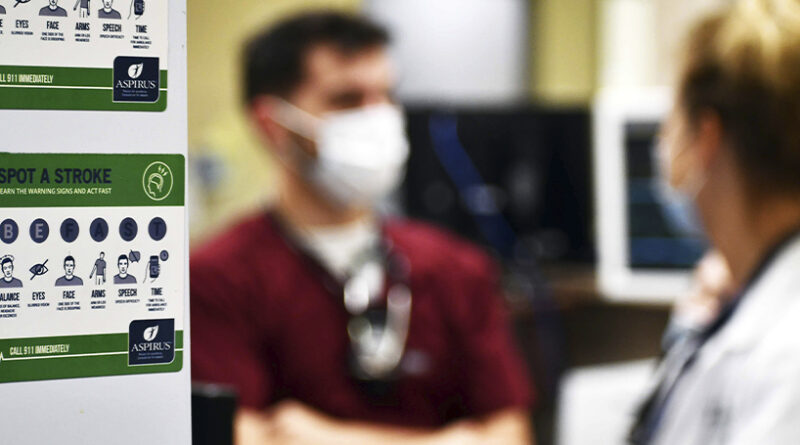Aspirus offers awareness tips ahead of World Stroke Day
By Patrick Lynn
Aspirus Health wants to spread the word that October 29 is World Stroke Day.
The annual recognition serves as a reminder of the importance of recognizing the signs and symptoms of a stroke while raising awareness and support for the more than 795,000 people who suffer a stroke every year in the United States.
According to the Centers for Disease Control, a stroke occurs when blood flow containing oxygen and nutrients to the brain is blocked, killing the brain cells that affect a person’s ability to move, speak, eat, think, and control other vital body functions.
Strokes are more common in individuals with high blood pressure, but they can happen to anyone of any age, at any time.
Aspirus Health says it’s vital to know how to spot the signs of a stroke in oneself or someone else.
The most common signs of a stroke include numbness or weakness in the face or extremities, mostly on one side of the body; impaired vision in one or both eyes; difficulty walking, dizziness, loss of balance, sudden headache, confusion, or difficulty talking or understanding.
“Once people start showing signs of a stroke, immediate action is crucial,” said Dr. Fawzi Hindi, a neurologist at Asprisu. “The amount of time that the brain does not receive oxygen determines the extent of the brain damage. The sooner a stroke is diagnosed, the more quickly stroke treatment can begin. Early diagnosis means a greater chance of surviving and avoiding long-term brain damage.”
Although stroke is a leading cause of death for Americans, only 38 percent were aware of all major symptoms and knew to call 911 when someone was having a stroke.
If a stroke is suspected, every second counts. Medical experts suggest using the F.A.S.T. test to help individuals recognize a stroke.
F—Face: Ask the person to smile. Does one side of the face droop?
A—Arms: Ask the person to raise both arms. Does one arm drift downward?
S—Speech: Ask the person to repeat a simple phrase. Is the speech slurred or strange?
T—Time: If you see any of these signs, call 9-1-1 right away.
“Because a stroke injures the brain, you may not realize that you are having a stroke. The people around you might not know it either. You may not be able to call 911 on your own. That’s why everyone should know the signs of stroke – and know how to act fast,” Hindi added.
When responding to a stroke
- Note the time when any symptoms first appear. This information helps healthcare providers determine the best treatment for each person.
- Do not drive or be driven to the hospital. Call 911 for an ambulance so that medical personnel can begin life-saving treatment on the way to the emergency room.
- Don’t wait for the symptoms to improve or worsen. If a person believes they may be having a stroke or experiencing stroke-like symptoms, call 911 immediately.
For more information, visit www.cdc.gov/stroke/about.htm.


